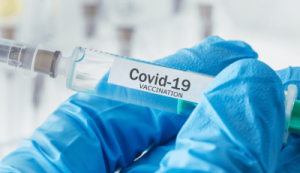By Li-Li Liu et al.
Source Frontiers
Objective: To analyze the clinical characteristics and prognostic impacts of SARS-CoV-2 Omicron infection among cancer inpatients during the December 2022 – February 2023 surge, in order to provide scientific evidence for clinical treatment and prevention and control measures.
Methods: A retrospective analysis was conducted on the clinical features, prognosis, and vaccination status of cancer in-patients infected with the Omicron variant during the COVID-19 pandemic of December 2022 – February 2023.
Results: A total of 137 cancer inpatients were included in the study, with a median age of 61 years, and 75 patients (54.74%) were male. The main symptoms were cough (69 cases, 50.36%), expectoration (60 cases, 43.80%), and fever (53 cases, 39.69%). Chest CT examination revealed bilateral pneumonia in 47 cases (34.31%, 47/137) and pleural effusion in 24 cases (17.52%, 24/137). Among the cancer patients, 116 cases (84.67%, 116/137) had solid tumors, and 21 cases (15.33%, 21/137) had hematologic malignancies, with the main types being breast cancer (25 cases, 18.25%) and lung cancer (24 cases, 17.52%). Among the cancer patients, 46 cases (33.58%) were asymptomatic, 81 cases (59.12%) had mild disease, 10 cases (7.30%) had severe infection, and 8 cases (5.84%) died. A total of 91 patients (66.42%) had been vaccinated, with 58 patients (42.34%) receiving three doses. Multivariate analysis showed that cerebral infarction and hypoproteinemia were risk factors for death from COVID-19 infection.
Read more click here

